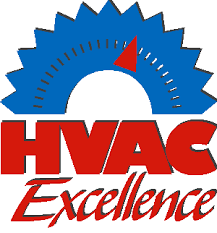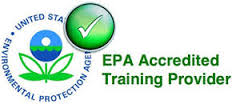Section 608 of the Federal Clean Air Act
It's the law!
Section 608 of the Federal Clean Air Act requires that all persons who maintain, service, repair or dispose of appliances that contain regulated refrigerants be certified in proper refrigerant handling techniques. The EPA has also placed a sales restriction on refrigerants, limiting the sale of regulated refrigerants to certified technicians only. Technicians who violate the Clean Air Act provisions may be fined, lose their certification, and may be required to appear in Federal court.
If an employer does not have this certification on file, they are subject to heavy fines (max $27,500) as well as the employee who does not have this specific certification. Any required Local, State or Industry licenses do not eliminate the requirement for EPA 608 Technician Certification if you work on refrigerant containing equipment.
Persons who work on stationary equipment or use refrigerant designed for these systems can become certified by passing a proctored Section 608 examination. Candidates for this test can be certified in any of three equipment categories or Universal - (Note that universal certification involves topics pertaining to the other three types of certification).
Click here to read more
Types of Certification
There are four types of certification:
Type I - limited to small appliances (5 lbs. or less refrigerant)
Type II - limited to medium, high and very high pressure appliances
Type III - limited to low pressure appliances
Universal - for persons who hold all Type I, II and III certifications
Certification Renewal & Replacement Cards:
The EPA 608 Certification does not expire. If you need to replace your card, contact us for instructions.
The test contains four sections: CORE, I, II, III.
Each section contains twenty five (25) multiple choice questions. A technician MUST achieve a minimum passing score of 70 percent in each group in which they are to be certified.
Each section is graded independently.
Core must be passed to receive any certification, but it is not a certification on its own.
A technician may choose to take Core plus any combination of Type I, Type II or Type III. It is not required to take all four sections on the examination and many only take the sections that cover the equipment they work with on a daily basis. For instance, a technician seeking Universal certification must achieve a minimum score of 70 percent, or 18 out of 25 correct, on the core section and on each of the four Sections of the test.
CORE Section contains 25 general knowledge questions concerning stratospheric ozone depletion, rules and regulations of the Clean Air Act, the Montreal Protocol, refrigerant recovery, recycling and reclaiming, recovery devices, substitute refrigerants and oils, recovery techniques, dehydration, recovery cylinders, safety, and shipping.
Section I contains 25 sector specific questions pertaining to small appliances.
Section II contains 25 sector specific questions pertaining to high pressure appliances.
Section III contains 25 sector specific questions pertaining to low pressure appliances.
Test Time Limit: 120 minutes
Please Note: The only outside materials allowed are a temperature/pressure chart and a calculator.
Certain personal information is required on the exam. Technicians should be prepared to present:
Picture identification-Social security number-Home address
Technicians should carefully study the CORE Section and the Section(s) related to the Type of certification in which they are seeking to achieve a passing score.
If a technician fails one or more of the Sections on the first try, they may retake the failed Section(s) without retaking the Section(s) on which they earned a passing score (additional testing fees apply). In the meantime, the technician will be certified in the Type for which they received a passing score. There is one exception; a technician
MUST achieve a passing score on the CORE Section to receive any certification.
NOTE: Any exam section retakes will require additional testing fees and are not included with your original registration.





